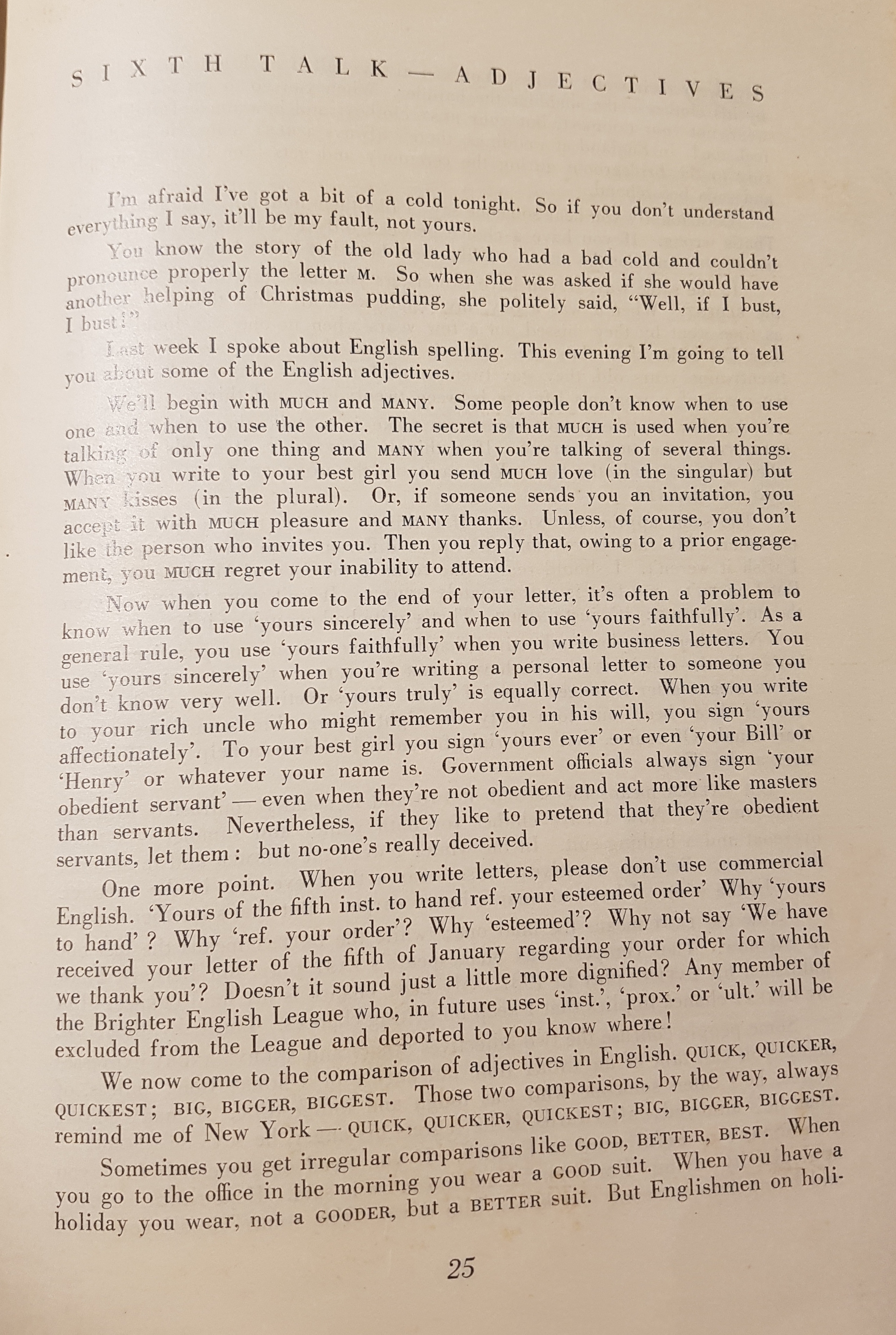|
Let's Speak English
| Contents | Previous Page | Next Page | - Page 25 -
SIXTH TALK - ADJECTIVESI'm afraid I've got a bit of a cold tonight. So if you don't understand everything I say, it'll be my fault, not yours.You know the story of the old lady who had a bad cold and couldn't pronounce properly the letter M. So when she was asked if she would have another helping of Christmas pudding she politely said "Well, if I bust, I bust!" Last week I spoke about English spelling. This evening I'm going to tell you about some of the English adJectives. We'll begin with MUCH and MANY. Some people don't know when to use one and when to use the other. The secret is that MUCH is used when you're talking of only one thing and MANY when you're talking of several things. When you write to your best girl you send MUCH love (in the singular) but MANY kisses (in the plural). Or, if someone sends· you an invitation, you accept it with MUCH pleasure and MANY thanks. Unless, of course, you don't like the person who invites you. Then you reply that, owing to a prior engagement," you MUCH regret your inability to attend. Now when you come to the end of your letter it's often a problem to know when to use 'yours sincerely' and when to use 'yours faithfully'. As a general rule3, you use 'yours faithfully' when you write business letters. You use 'yours sincerely' when you're writing a personal letter to someone you don't know very well. Or 'yours truly' is equally correct. When you write to your rich uncle who might remember you in his will, you sign 'yours affectionately'. To your best girl you sign 'yours ever' or even 'your Bill' or 'Henry' or whatever your name is. Government officials always sign 'your obedient servant' - even when they're not obedient and act more like masters than servants. Nevertheless, if they like to pretend that they're obedient servants, let them : but no-one's really deceived. One more point. When you write letters, please don't use commercial English. 'Yours of the fifth inst. to hand ref. your esteemed order' Why 'yours to hand'? Why 'ref. your order'? Why 'esteemed'? Why not say 'We have received your letter of the fifth of January regarding your order for which we thank you'? Doesn't it sound just a little more dignified? Any member of the Brighter English League who, in future uses 'inst.', 'prox.' or 'ult.' will be excluded from the League and deported to you know where! We now come to the comparison of adjectives in English. QUICK, QUICKER, QUICKEST; BIG, BIGGER, BIGGEST, Those two comparisons, by the way, always remind me of New York - QUICK, QUICKER, QUICKEST; BIG, BIGGER, BIGGEST. Sometimes you get irregular comparisons like GOOD, BETTER, BEST, When you go to the office in the morning you wear a GOOD suit. When you have a holiday you wear, not a GOODER, but a BETTER suit. But Englishmen on holidays 25 |

|
|
| Contents | Previous Page | Next Page |